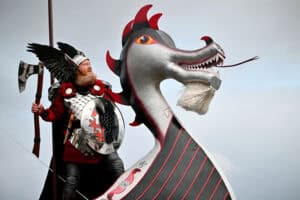Burkinabe filmmaker Idrissa Ouedraogo, a towering figure in African cinema, died Sunday at the age of 64, the national film makers guild announced in a statement.
Ouedraogo produced or directed some 40 films from the 1980s to the 2000s, set in Africa and often exploring the strains between modern urban and traditional rural lifestyles.
In 1990, he won the Grand Prix award at the Cannes Film Festival for “Tilai”, an African version of a Greek tragedy about family dishonour, which is set in a village and is probably his best-known work internationally.
“Burkina Faso has lost a filmmaker of immense talent,” President Roch Marc Christian Kabore said in a statement.
Ouedraogo “worked hard to raise the profile of Burkinabe and African cinema outside our borders,” he added.
He died at 0530 GMT of an unspecified illness in a hospital in the capital Ouagadougou, the union of filmmakers said.
“He was the maestro of Burkinabe cinema. It’s painful, an inestimable loss for us and for Africa as a whole,” said Rasmane Ouedraogo, who starred in “Tilai”.
Ouedraogo began his career as a cinematographer on the 1981 movie “Poko” which won the best short film award at FESPACO, Africa’s biggest film festival.
– ‘Told the story of ordinary people’ –
After completing his film studies at the prestigious Sorbonne in Paris, he created his first feature-length film “Yam Daabo” (The Choice) about poverty-stricken villagers in the Sahel who must choose to stay and await international aid or leave for a more fertile region.
As well as winning at Cannes, “Tilai” went on to win the Golden Stallion of Yennenga, the top prize at FESPACO, in 1991.
Served by a cast of non-professional actors, the film was in the Moore language, rather than French, to preserve its authenticity.
It was shot in the Mossi area in northern Burkina Faso, where the filmmaker grew up.
“I like this beautiful and brutal scenery,” Idrissa Ouedraogo told AFP in 1990.
“He has inspired a whole generation of young African filmmakers. He has managed to share our stories with the world,” said Burkina Faso filmmaker and documentary maker Michel Zongo.
“He told the story of ordinary people, planting his camera in rural areas rather than cities,” said Abdoulaye Dragoss Ouedraogo, filmmaker and professor at Bordeaux university.
“He knew how to show the beauty of the Sahel.”
Ouedraogo went on to head the FESPACO jury in 2003.
He also worked in theatre, including at the prestigious Comedie-Francaise in Paris, where he staged “The Tragedy of King Christophe” by Aime Cesaire.






